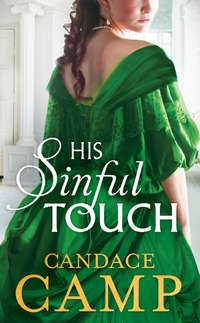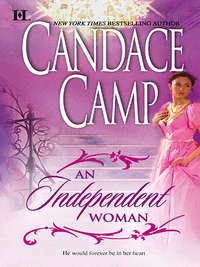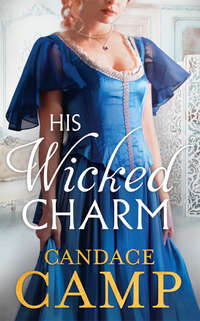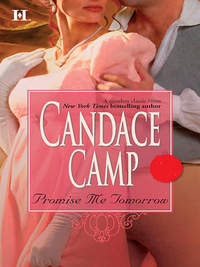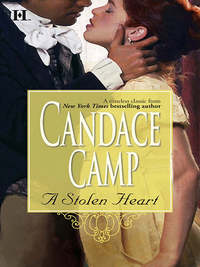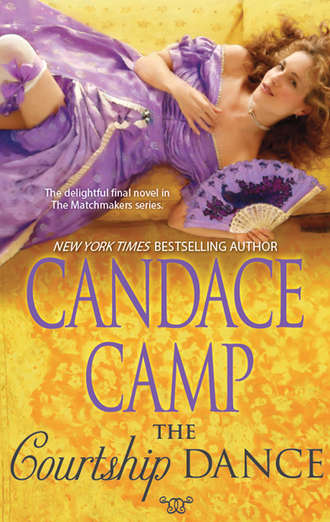
Полная версия
The Courtship Dance
The dress was too long, but that was a trifling matter that Maisie could take care of easily enough, and Francesca knew that she was desperately in need of a new gown. There were only so many times that one could redo a gown to look fresh, and it would not do to appear in the same ball gown too often. Pride was a sin, Francesca knew, but she could not bear for people to know how close she skated to the edge of penury.
The problem, however, was the slippers to go with it. No matter how careful she tried to be with them, the thin soles of dancing slippers wore through incredibly quickly, and they were not the sort of thing on which one could normally work a bargain. Therefore, she did her best to stick to plain colors that would go with many different frocks. What would really look marvelous with the dress, of course, would be a pair of silver sandals, but that would be too extravagant a purchase. But perhaps… There were several other dresses they would suit, after all.
Maybe she could go into the attic and dig about in the trunks again. Some valuable trifle that she could sell might turn up.
“Lady Haughston?”
Francesca glanced up quickly, aware that she had become entirely too lost in her thoughts. “What? I’m sorry. I must have been woolgathering.”
“We are here,” Althea told her somewhat stiffly.
“Ah, yes, so we are.” Francesca glanced out the window to see the familiar form of the Royal Theater.
She suspected that she had put Althea’s nose out of joint a bit by drifting off like that. But, really, the girl should learn that analyzing one’s family tree was scarcely the way to capture anyone’s attention. She would have to think of some way to tutor the girl in the art of conversation if she was to have a chance of winning Rochford’s favor. Of course, that was if she decided Lady Althea was the woman she wanted to win his favor. Francesca was, quite frankly, beginning to have her doubts.
Rochford climbed out with alacrity and reached back up to hand the women down. Francesca managed to hang back a bit as they strolled into the theater so that Rochford was walking beside Althea alone. She must, after all, give him a chance to get to know the woman better. Perhaps Althea had been a trifle nervous about the situation; Rochford’s presence sometimes had that effect. Nerves frequently made people chatter on about the most inconsequential things.
Francesca cast a glance at them, walking slightly ahead of her. Rochford’s dark head was bent a little toward Althea as he listened to her. Perhaps he had not minded Althea’s conversation earlier. She had seen husbands who were quite content with the most ninny-hammered of wives. And Althea was attractive.
It occurred to her that perhaps she ought to drop by someone’s box during intermission; that would give the couple a chance to be alone together without it being improper, given that there was an entire theater of people around them. She would have to look around the place before the play began to see if she could spot an acquaintance.
She turned to glance around at the other people walking into the theater. Startled, she felt a touch beneath her elbow and turned to find Rochford gazing quizzically at her. He and Lady Althea had dropped back beside her.
“Woolgathering again, Lady Haughston?” he asked with a faint smile.
“Oh, um…” Francesca felt a flush rising in her cheeks. “I beg your pardon. I am afraid I must be a trifle distracted this evening.”
They continued into the theater, with the duke now by Francesca’s side, Lady Althea in front of them. However, when they reached the duke’s luxurious box, Francesca managed to neatly maneuver things so that she was against the wall, and Althea was between her and Rochford. Again separating herself from their conversation, Francesca scooted forward in her seat and raised her opera glasses to inspect the other occupants of the theater.
There was Mrs. Everson, with her husband and two daughters. Francesca supposed she could visit with them later, though the prospect was not inviting. She lowered her glasses and nodded to them, just in case, then resumed her search. She wished she had urged Sir Lucien to attend with someone tonight, for then she could have visited with him and been assured of a lively conversation.
As she looked, she became aware of that odd, indefinable sensation of being watched. She lowered her glasses and swept her eyes around the large room, taking in the tiers of boxes, then glanced down at the floor below.
She let out a low exclamation as her eyes fell on a man standing in the aisle, staring up at her. Her hand tightened involuntarily on her fan.
“Francesca? What is it?” she heard Rochford say, leaning forward and following her gaze.
“The devil!” he exclaimed under his breath. “Perkins.”
The man, seeing that he had gained Francesca’s attention, swept her a mocking bow. Francesca looked away without even a nod, sitting back in her seat.
“What is he doing here?” she asked with disgust.
“Who?” Lady Althea asked, glancing toward the crowd below.
“Galen Perkins,” Rochford answered.
“I don’t believe I recognize the name.”
“There is no reason for you to,” Francesca assured her. “He has been out of the country for years.”
“He is a thorough rogue,” Rochford added, shooting a quick sideways glance at Francesca.
He knew, Francesca thought, that Perkins had been one of her late husband’s cronies. Though he came from a minor branch of a good family, he had done all he could to tarnish their name. He had been a gambler and drinker, accompanying Lord Haughston on many of his wilder ventures. He had even, Francesca recalled, with a tightening of her stomach, been so low as to make advances to her despite his friendship with her husband.
“What is he doing back in London?” Francesca asked. She explained in an aside to Althea, “He had to flee to the Continent several years ago because he killed a man in a duel.”
Althea’s eyes widened. “Oh, my. Who?”
“Avery Bagshaw, Sir Gerald’s son,” the duke told her. “As Sir Gerald died not long ago, I presume Perkins has decided that it is safe to return. Without Sir Gerald to push the authorities to arrest him, it is doubtful that anything will be done now. It has been seven or eight years, and they are apt to turn a blind eye to such things, anyway.”
“Well, I am sure he will not be received anywhere,” Althea said decisively, delivering what was for her, apparently, the greatest punishment.
“No. I am sure not,” Francesca agreed. It was terrible that he was once again able to live here freely, given what he had done. But at least she would not have to be around the man. With Andrew gone, he would not be coming to her house, and Althea was right in saying that he would not be received by polite society, so he would not be at any parties.
She pulled her mind away from the thought of Galen Perkins, turning her attention back to her companions. Conversation had lagged while she had been scouting the theater, and Rochford and Althea fell silent again once the topic of Galen Perkins had been dropped.
Gamely, Francesca took up the conversational baton again, saying, “Have you read the newest book?”
“Lady Rumor?” Rochford tossed back, a smile quirking at the corner of his lips.
“Who?” Althea asked, looking confused. “Lady who?”
“Rumor. It’s a nom de plume,” she explained. “No one knows who it is. It is said that she is a member of the ton.”
Althea looked at her blankly. “Why would a member of the ton wish to write a book?”
“It is supposed to be full of scandals and rumors—thinly disguised, of course. Everyone is said to be quaking for fear they will be in it,” Francesca went on.
“Ah, but how slighted they will feel if they are left out,” Rochford added.
Francesca chuckled. “True enough.”
“But that’s absurd,” Althea said, frowning. “No one would wish to be included in a book about scandal. Who would wish for a blot upon one’s name?”
It occurred to Francesca that Althea Robart truly was entirely lacking in a sense of humor. She glanced at Rochford and saw his dark eyes dancing in amusement.
“You are right, of course, Lady Althea,” he said smoothly. “I cannot fathom why I should have thought such a thing.” He cast a droll glance at Francesca, and she had to turn away to hide a smile.
But that would not do, she knew. Clearly, the light social conversation in which she was wont to engage was not the sort of thing at which Lady Althea shone. Therefore, it was incumbent upon her to turn the conversation in the other woman’s direction, to introduce a topic upon which Lady Althea could expound. She cast about for such a subject. The problem was that she did not know Lady Althea well.
“Lady Symington’s ball will be coming up soon,” she said after a moment. “Will you be attending, Lady Althea?”
“Oh, yes. She is second cousin to my father, you know.”
Francesca suppressed a groan. Indeed, she had managed to hit on a topic the woman enjoyed—family.
“Ah, look, the lights are going down,” Rochford spoke up. “The play is about to begin.”
“Why, yes, so it is.” With relief, Francesca turned her attention to the stage.
She was not really interested in the action that was occurring there, however. She was too much occupied with her plans. She seemed to be failing at every turn to bring Althea into any interesting conversation. It would be best, she thought, if she followed up on her idea to visit someone else during intermission, leaving Althea and Rochford alone in the box.
It would have been better if she could have found someone more engaging than the Eversons, of course. Mr. Everson was the sort who thought himself an expert on almost any topic and was more than happy to give his opinion, whether one wished it or not. Mrs. Everson, on the other hand, was given to conversing about her ailments, which seemed to be legion, but which never appeared to keep her from attending all social functions. The girls, at least, had little to say—though it was not hard to see why, given that both of their parents strove to dominate any conversation.
However, Francesca knew that she had little choice. She was growing more certain that Althea Robart was not the wife for Rochford, but still, she ought to give it one more push. Perhaps, if she was alone with Rochford, Althea would unexpectedly blossom in some way.
Therefore, as soon as the curtain fell and the lights came on, Francesca stood up, turning to the others. Rochford, however, had been faster than she. He, too, had risen, and before she could speak, he began, “Ladies, shall I bring you some refreshments? A glass of ratafia, perhaps?”
“How kind of you,” Francesca replied quickly before Althea could say anything. “Not for me, thank you. I believe that I shall slip around to see Mrs. Everson. But perhaps Lady Althea would like a glass.”
Rochford stared at her, his eyebrows rising. “Mrs. Everson?”
“Yes. I saw her across the way.” Francesca gestured vaguely about the theater.
“Yes. So did I.” Rochford looked at her oddly. “Well, then…pray allow me to escort you.”
“What?” Now it was Francesca’s turn to stare at him. “You?”
She was well aware that the duke had avoided Mr. Everson like the plague ever since the man had tried to inveigle Rochford into some investment scheme in India. Why, just a few weeks ago Callie had related, laughing, the way Rochford had spent an entire weekend at Lord Kimbrough’s country house dodging Mr. Everson. Why would he be volunteering to enter the man’s presence now?
“Yes,” Rochford returned her gaze blandly. “I.”
“But I— That is—”
“Yes?” He cocked an eyebrow in that maddening way he had.
Francesca swallowed. “Of course. How nice.” She turned to the other woman with a smile. “Lady Althea, would you like to accompany us?”
Althea blinked and cast a glance across the theater—no doubt wondering, Francesca thought caustically, what was so interesting about the Eversons.
“Yes, all right,” she said after a moment, also rising to her feet.
Rochford stepped aside to let the women pass in front of him, but before Francesca was halfway to the door, there came a knock, and then it opened.
Galen Perkins stood framed in the doorway.
Francesca stopped abruptly, and for a long moment there was nothing but silence in the small room. Then Perkins bowed and stepped inside.
“Lady Haughston. You look lovelier than ever. I would have thought eight years would have aged you, but clearly you have found some magic potion.”
“Mr. Perkins,” Francesca answered through tight lips, thinking that she could not say the same about him. She had never liked the man, but he had once been attractive. Years of dissipation, however, had padded his once-lithe frame and blurred the lines of his face. His golden curls, though still artfully tousled, had lost much of their glimmer and were growing thinner, and there was a jaded look in his pale blue eyes.
“Please accept my condolences on your loss,” he went on. “Lord Haughston was a good friend to me. I was very sorry that I was out of the country when he passed away.”
“Thank you.”
Rochford stepped past the women, placing himself in front of Francesca. “Perkins.”
“Rochford,” the other man replied, looking faintly amused at the duke’s gesture.
“I am surprised to see you here,” Rochford went on flatly.
“Indeed? I wished to speak to Lady Haughston. I could not ignore the presence of an old friend.”
“We were never friends,” Francesca told him.
“Such harsh words,” Perkins responded, the small, disdainful smile never leaving his lips. “After all the years that we have known each other, I would not have thought you could be so unkind.”
“I did not mean that I was surprised to see you here in this box,” Rochford explained sharply, “though it is somewhat presumptuous, given your lack of invitation. What I meant was that I would not have thought to see you in London after your precipitous departure eight years ago.”
“That is all in the past.”
“A man’s life can scarcely be shrugged aside so easily,” Rochford retorted.
“I can see that you have not changed,” Perkins drawled. “You always were a sanctimonious sort.” He turned toward Francesca, adding, “Setting your sights higher this time, my dear? I wonder what poor Andrew would think.”
Francesca stiffened. It had slipped her mind over the years how thoroughly she disliked this man.
But the duke spoke before she could open her mouth to deliver a set-down. “I think it is time you took your leave, Mr. Perkins.”
Perkins’ lips tightened, and for a moment Francesca thought he was going to shoot back an angry retort—or worse—but then he visibly relaxed. “Of course, Your Grace.” The honorific sounded like an insult on his lips. Perkins bowed toward Francesca and Althea. “Ladies.”
He turned and left the box. For a moment no one spoke. Then Althea said, “Really. What an obnoxious creature. Do not tell me you actually associated with him, Lady Haughston.”
“No, of course I did not,” Francesca returned irritably. “He was an acquaintance of my late husband’s, that is all.”
“Very bad form, his coming here,” Lady Althea commented.
“I don’t believe that Mr. Perkins worries overmuch about ‘form,’” Rochford said dryly.
“Well, there is scarcely time now to pay the Eversons a visit,” Francesca announced. “Come, let us sit down again, Lady Althea.”
She tucked her arm through Althea’s, guiding her back to their chairs, so that Althea would once again be between Francesca and Rochford.
Throughout the next act, Francesca kept glancing over at Rochford, trying to see whether he ever even glanced at Althea. His eyes were always on the stage, except once, when she found him gazing at her. She blushed up to her hairline, grateful for the concealing darkness. She hoped she had not been too obvious. Rochford had always been annoyingly quick to notice things, and if he realized what she was about, he might very well order her to cease.
Deciding that the ploy of visiting another box had been a dismal failure, she remained seated during the next intermission and made a last attempt to engage Althea and Rochford in conversation. As it turned out, it was she and Rochford who did most of the talking, though she did her best to turn the discussion in Althea’s direction whenever she could. When Rochford brought up a composer, Francesca asked Althea what she thought of him. When he mentioned going to his manor house in Cornwall, Francesca sought Althea’s opinion of the loveliness of the area. And when Francesca and Rochford drifted off into a conversation about Francesca’s old bay at Redfields, she turned to Althea and inquired whether she liked to ride.
It was a wearing way to conduct a conversation, and, frankly, Francesca could not tell that it did any good. Althea answered her questions, but her contributions were not particularly enlivening, and as a result the conversation did not flow naturally, but bumped and shuddered along.
Francesca could not imagine that Rochford felt any particular inclination to seek out Lady Althea’s company in the future, but she was determined that if he did, he would be entirely on his own in the matter. She had no desire to spend another evening trying to milk an enjoyable conversation out of the woman.
When the play was over, Rochford escorted the women home, politely walking Althea to her door, then returning to the carriage to see Francesca back to her house. The butler answered the door, and then, with a bow, took himself off to bed. Francesca turned to Rochford.
She was suddenly, excruciatingly, aware of the dark silence of the house around them. They were alone for the first time that she could remember—not really alone, of course, but as much so as anyone could possibly be. The servants were all upstairs in their beds asleep. A candelabra set on the table in the hallway provided the only light.
The silence was profound, almost a presence in itself, and darkness hovered at the edges of the candlelight. She looked up into Rochford’s face, feeling again the odd tingling of awareness that had affected her the night of the dance.
Her stomach plummeted, however, when she saw his expression. His brow was knitted in a frown, and his mouth was a straight line. His dark eyes glittered in the dim light.
“What the devil do you think you are doing?”
CHAPTER FIVE
FRANCESCA BLINKED, for a moment too taken aback to think. Then she lifted her chin and responded in a glacial tone, “I beg your pardon? I am sure I haven’t the slightest notion what you are talking about.”
“Please. That innocent expression may work with others, but not with someone who’s known you since you were in short skirts. I am talking about your little performance tonight.”
“Performance? Don’t you think you are being a trifle dramatic?”
“No. What else would you call it? First you contrived for the three of us to attend the theater tonight—even though you are not friends with her.”
“How can you know that?”
Rochford shot a level look at her. “Francesca…really, give me a bit more credit than that. Then, when we got to the theater, it was ‘What do you think about this, Lady Althea?’ and ‘How do you like that composer, Lady Althea?’ Not to mention your plan to leave the two of us together while you went to call on the Eversons. Admit it. You were practically throwing Althea Robart at me this evening. I must say, it isn’t like you to be so ham-fisted.”
“Yes, well, if the woman had even an inkling how to carry on a conversation with a man, I wouldn’t have had to be,” Francesca retorted in an aggrieved tone.
“Why? Don’t tell me that she has set her cap for me. I cannot imagine her unbending enough to pursue anyone. Nor can I envision her mother seeking anyone else’s help, either.”
“No. No one asked me to. Althea is not trying to catch you. I think that should be clear.”
“Again I ask, why?”
Francesca simply looked at him for a long moment, wondering whether there was any good way out of this situation. At her delay, Rochford crossed his arms and cocked a brow at her.
“Don’t bother to think up a lie. We both know I shan’t believe it.”
She grimaced. “I daresay not. Can you not accept that I was simply trying to do you a favor?”
“By saddling me with a woman who can recite her entire family tree for five generations back?” he retorted.
“I did not realize she was so boring,” Francesca admitted. “I am not well acquainted with the woman.”
“Yet you thought she was the perfect woman for me?”
“No. I thought she was only one of a number of candidates.”
He stared, seemingly bereft of speech. Finally, speaking each word with great care, he said, “Why would you have any candidates?”
“Well, really, Rochford, it is time that you married. You are thirty-eight, after all, and as the Duke of Rochford, you have a duty to—”
“I am well aware of my age, thank you,” he ground out. “As well as of my many duties as the Duke of Rochford. What I fail to understand is why you thought I was seeking a wife. Or why you should be the one to provide me with prospects!”
“Rochford!” Francesca cast a glance up the staircase. “Shh. The servants will hear.”
Конец ознакомительного фрагмента.
Текст предоставлен ООО «ЛитРес».
Прочитайте эту книгу целиком, купив полную легальную версию на ЛитРес.
Безопасно оплатить книгу можно банковской картой Visa, MasterCard, Maestro, со счета мобильного телефона, с платежного терминала, в салоне МТС или Связной, через PayPal, WebMoney, Яндекс.Деньги, QIWI Кошелек, бонусными картами или другим удобным Вам способом.


